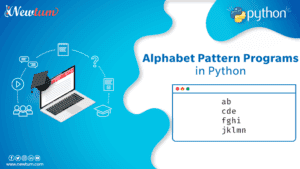Python is an advanced-level, object-oriented programming language. It is used for software development purposes, either its front-end or back-end development. It was created by Guido Van Rossum in 1989. Codes written in python are comparatively easy to read than in other programming languages because their work is based on DRY, that is, Don’t Repeat Yourself. It can also run on the majority of the systems may, it be Windows, Mac, etc. The thing that separates python from other languages is that it offers an enormous amount of libraries and packages, which can, in turn, help the developer with a wide range of tasks.
Python is a new generation programming language that is extensively used in different fields such as Artificial Intelligence (AI), Machine Learning, Data Science, Web Development, designing software such as Auto CAD, creating media players, etc.
Key Points for learning Python
1) Career Prospect:
The industry is literally hunting for Python programmers. The requirement is skyrocketing but not the supply, so if one wants to be just hunted by companies, he/she can do a course on python online as python has grown exponentially in the last decade without any direct competition, so there is a huge requirement for programmers out there.
2) Financial Aspect:
Let us be straight here it is well known that more than half of the people stick around to make their ends meet, which is completely fine. Python programmers are paid fairly well according to market standards. An entry-level software developer in a decent organization is paid around a million goddamn rupees a year, which is very good according to the industry standards and in comparison to other languages such as C, C#, Javascript, etc.
3) Easy to Learn:
As mentioned earlier, this language is easy to read even by beginners. So it is easy to learn is very obvious, which adds one more reason to learn besides being advantageous economically.
4) Free Learning:
You can learn python online from a plethora of online learning platforms such as Unacademy, Udemy, and Coursera, literally for free.
5) Versatility:
As discussed earlier, python has extensive uses in different kinds of industries. This increases the employability of the learner as if he is unable to get into his/her preferred sector; still, they can get employed elsewhere for the time being.
Scope of Python Programming
Python is the future of the world, like AI and machine learning, as these two have their codes written in python. Python is highly versatile as it is used across different sectors like aforementioned AI and machine learning and Data science too, which is a very hot field right now in the industry, and also it possesses extensive use across different sectors.
As evident from above, python has the lion’s share in today’s market as it is involved in different sectors like social media, web series streaming, and music streaming. Python is also used in game development, and not mind you, it is not used for those petty low-level flash games development but for games with high-definition graphics.
- Big shot organizations such as NASA, Meta, Quora, Netflix, Google, & Spotify prefer their applications written in python.
- MNCs such as Facebook, YouTube, Amazon, PayPal, etc., regularly look for Python coders.
- One can grab significant positions like Research analyst, Software developer, etc.
- Considerably vital for CV if certification in python is mentioned.
- It supports multiple applications and programs.
Salaries of Python Programmers
Accept it or not, we are all in for money here. In the industry, Python programmers are rewarded well, and as this industry is growing without any threats, the pay is decent here.
- For an entry-level software engineer, the pay is around ₹3,00,000 per year.
- Any Data scientist recruited newly is paid around ₹5,71,493 – ₹10,000,00+ Annually.
Advantages of Learning Python
1) Web development:
Python lets one develop web applications quite easily since it has so many library functions. Internet protocols it has library functions like HTML, JSON, etc. Some other Library functions useful in web development are Paramiko, BeautifulSoup, etc.
2) Education sector:
Python is a readable language, and the codes written in it are easy. Thus it makes it easier for the masses to relate to it, and so python is considered the programming language of the masses. Schools can easily teach students python as it is fairly easy for the teachers to teach and also fairly easy for the students to grasp. Also, the vast suitability of python in industry and employment supports its Academic inclusion in schools and colleges.
3) Scientific applications:
Python also has a wide range of applications in the scientific world. It is also easy to read. Just requiring a few lines for coding makes it politely acceptable in all science-related areas such as condensed matter physics, real analysis, and quantum computing, and is extensively used in engineering and research facilities. Apart from being scientifically acceptable, python is also economically feasible as entry-level coders are quite affordable for organizations.



